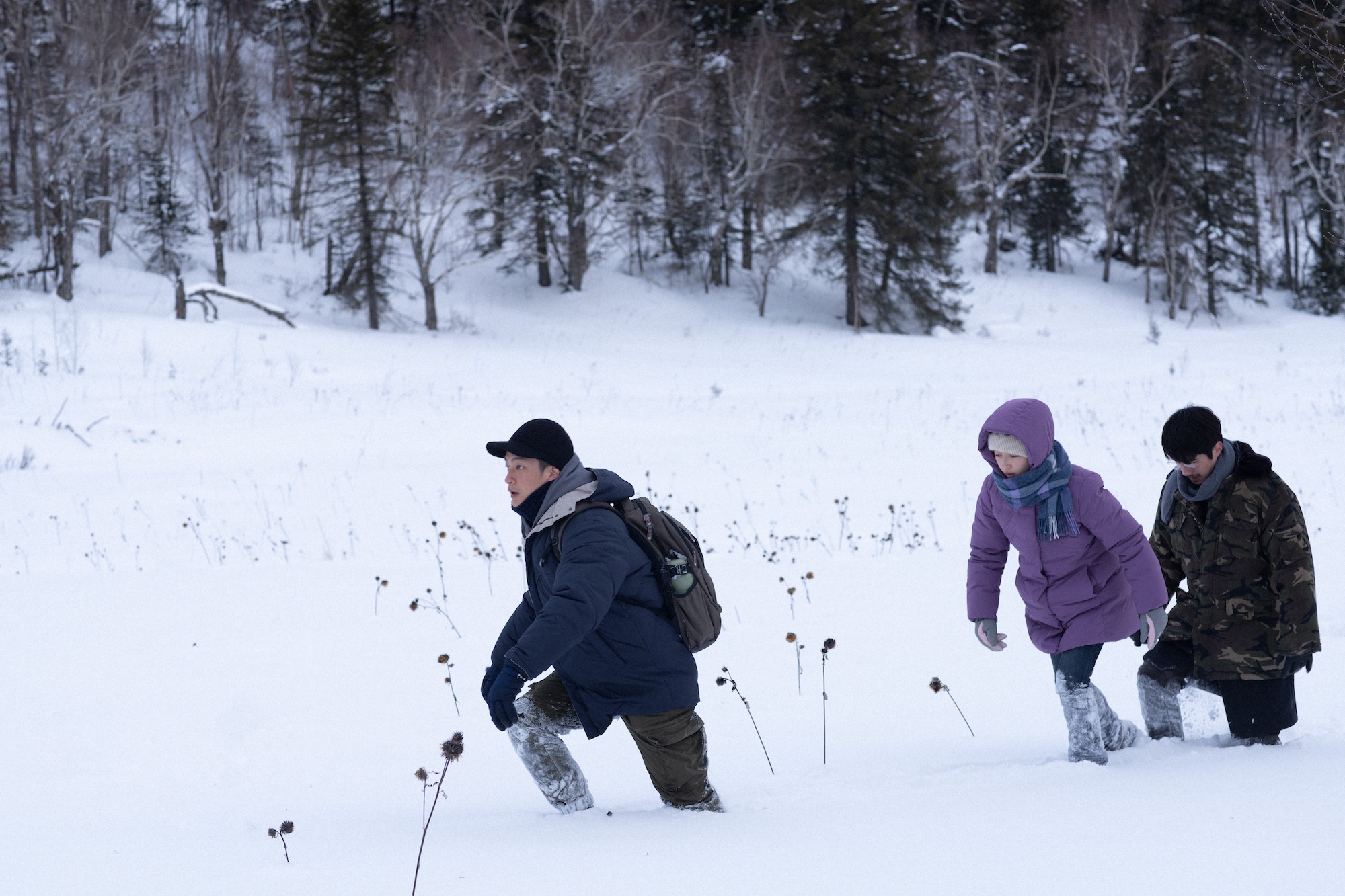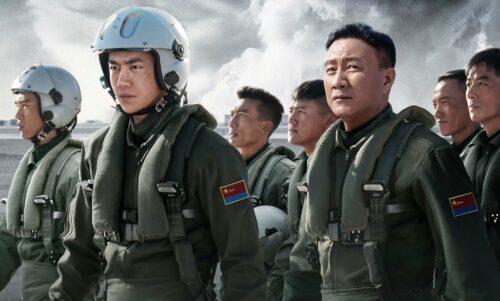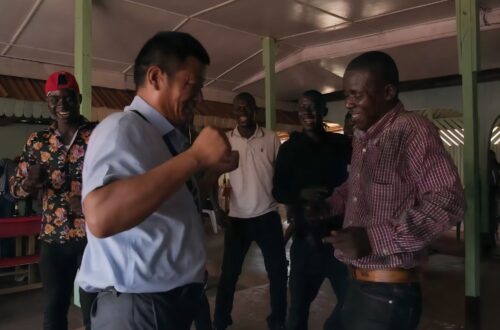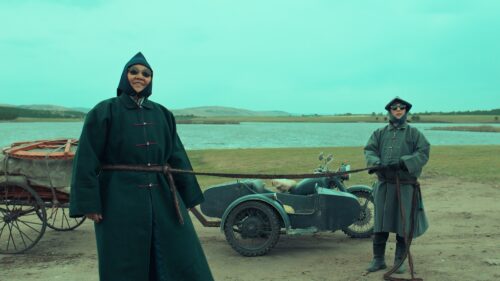‘The Breaking Ice’: A portrait of angst and ennui among Chinese youth
Singaporean filmmaker Anthony Chen relies heavily on symbolism in his first China-set feature.

Ten years have passed since Anthony Chen’s (陈哲艺 Chén Zhéyì) delicate family drama Ilo Ilo won the Camera d’Or for best first feature at the Cannes Film Festival. This year, he returned to the French Riviera with The Breaking Ice, a slow-burn drama focusing on three disenchanted twentysomethings in northeastern China.
With the film’s opening scene, in which people cut and harvest huge blocks of ice from a frozen lake, Chen reminds the audience that the story takes place far from his native tropical island-nation where his first two features were set. This time, the locale is Yanji, a small Chinese city bordering North Korea, where half the residents are of Korean ethnicity. (Incidentally, Gěng Zǐhán’s 耿子涵 A Song Sung Blue, another Chinese-language film at this year’s Cannes, is also set in a northeastern city with a significant Korean ethnic minority population.)
Haofeng, a Shanghai-based depressed financier played by Liú Hàorán 刘昊然 (Detective Chinatown franchise), visits Yanji to attend a high school classmate’s wedding. While he’s busy avoiding calls from a therapist’s office and contemplating suicide, he loses his phone during a tour of the city. The guide Nana, played by Zhōu Dōngyǔ 周冬雨 (Us and Them), spares him some cash and invites him to a night out with her friend Xiao (Qū Chǔxiāo 屈楚萧, The Wandering Earth), who works at an eatery where Nana usually ends her tours. The trio end up drinking till late and Haofeng misses his Shanghai-bound flight the next morning. Nana and Xiao convince him to spend a few more days with them in the small town.
For the rest of the story, as the film title suggests — both the English and Chinese versions, the latter of which translates to “burning winter” (燃冬 rán dōng) — the three protagonists begin to thaw and warm up to each other. But it’s not a simple love-triangle narrative; in fact, romantic love plays a curiously small part in it. Instead, Chen seeks to capture deeper anxieties of his protagonists and, by extension, of the younger generation in today’s China.
The stories of the three characters, who are all outsiders to the city, are portrayed evenly. Nana’s traumatic past is gradually revealed through a view of a scar on her ankle and her tears when Xiao sings a melancholic cover of “Susan’s Dancing Shoes,” a fitting song by the famous singer Pǔ Shù 朴树. In an earlier scene, she says to Haofeng that even if she doesn’t like her job as a bus-tour guide, she still has no choice but to do it. Meanwhile, the motorcycle-riding, macho-looking Xiao feels that he’s achieved little with his life and grows increasingly worried as his little cousin holds up a mirror to him.
These introspections unfold against snow-covered monochromatic landscapes, the painterly quality of which is gracefully captured by Yu Ching-ping (余静萍 Yú Jìngpíng), the Taiwanese cinematographer who previously worked on the Academy Award-nominated Better Days. In scenes where Haofeng chews an ice cube, a sort of coping mechanism for him, or where the characters walk on a frozen lake, the crisp sound of the breaking ice holds as much attention as does the arresting visuals.
An homage to French New Wave films, such as Jean-Luc Godard’s Band of Outsiders (1964) and François Truffaut’s Jules and Jim (1962), appears in a scene where the three protagonists run through a bookstore with stolen books in hand. Liu and Zhou, teaming up again after Fire on the Plain (2021) (which is yet to be released in China), play their parts well, but it is Qu who shines brighter as the stoic Xiao.
The Breaking Ice is, without doubt, Chen’s most accessible and universal work to date, especially given his strict insistence on using repeated motifs and symbols, e.g., ice cube, ice maze, frozen lake, etc. Whether this was a conscious attempt to try something different than his usual subdued, understated storytelling, such as in Wet Season (2019), is debatable. In the film’s press kit, the filmmaker admits that this was “a film [he] made in the shortest time ever from conception to completion.” Moreover, as he travels from the hot and humid Singapore to the cold and wintry northeastern China, Chen seems to slightly stumble with getting his young Chinese protagonists’ dialogue right. Struck by the beauty of the Changbai Mountains, Haofeng asks his companions if they’ve ever thought about ending it all in one contrived scene that inadvertently recalls a hilarious line from this year’s worldwide box office champion Barbie.
“A love letter to the young people of China” is how Chen describes The Breaking Ice. While all three of his previous features deal with outsiders or foreigners, this time Chen himself has become a stranger to the place and the people in his China-set story.
The Breaking Ice had its North American Premiere at the 48th Toronto International Film Festival on September 15.







